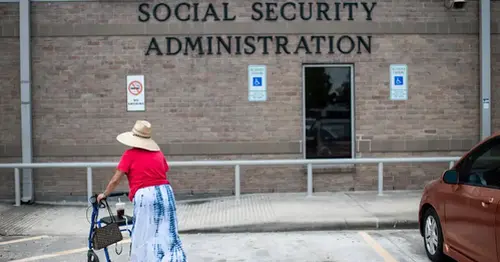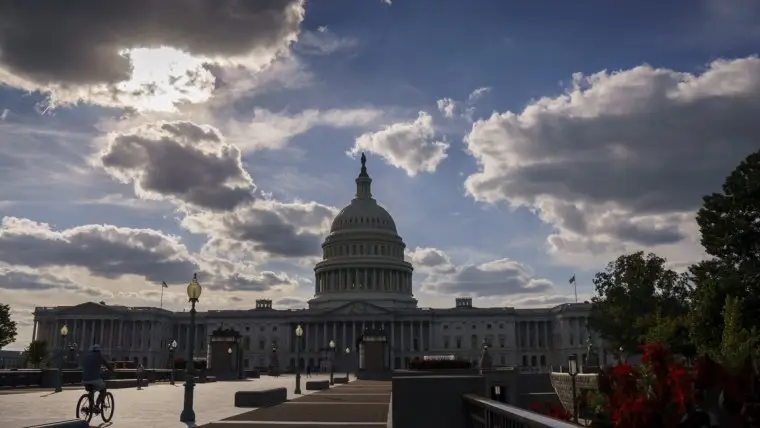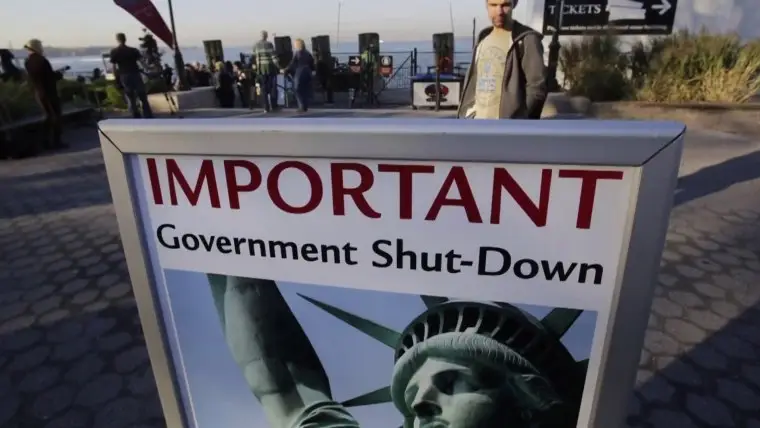
What happens to Social Security payments in a government shutdown
If the federal government shuts down Sunday, numerous publicly funded agencies will stop work and their employees won't be paid, but Social Security checks will still go out.
Social Security is considered a mandatory program, and it isn't funded by the shorter-term appropriations bills passed by Congress and signed by the president. That means its operations and funding don't stop when the government shuts down.
That's important for a large proportion of Americans, as about 67 million people receive monthly Social Security benefits, according to the Social Security Administration. Those benefits go primarily to retirees but also to people with disabilities, as well as dependents of deceased beneficiaries.
Medicare and Veterans Affairs benefits also continue to be distributed during a shutdown.
Federal workers’ pay at risk in potential government shutdown
Sept. 25, 202303:58The federal government will shut down at 12:01 a.m. ET Sunday if Congress does not pass a bill to provide more funding. The GOP has a narrow majority in the House, and a group of hard-line conservatives is holding out from the rest of Republicans and demanding deep cuts in government spending.
President Joe Biden and the Democrats, who control the Senate, oppose those cuts.
In the event of a shutdown, "nonessential" actions would stop, and 4 million federal employees would not receive paychecks.
Some, including members of the military, would work without pay and would receive back pay later on, after a new funding bill is passed and signed into law. Other federal employees would be furloughed and would not report to work.
And a shutdown would stop many other federal programs and services. The Biden administration said Monday that the Special Supplemental Nutrition Program for Women, Infants, and Children, or WIC, will stop operating one or two days into a shutdown, although Agriculture Secretary Tom Vilsack said some states might be able to keep their programs running a bit longer than that.
WIC is a program intended to help low-income pregnant and postpartum women, as well as children under age 5, access healthier food. According to the Agriculture Department, more than 6 million people received WIC benefits each month in 2022, including about 39% of all U.S. infants.
A long shutdown could harm the economy, as well. The longest shutdown lasted for 35 days, from Dec. 22, 2018, to Jan. 25, 2019, and the Congressional Budget Office estimated that it cost the U.S. economy at least $11 billion directly, with indirect costs that were harder to quantify.








